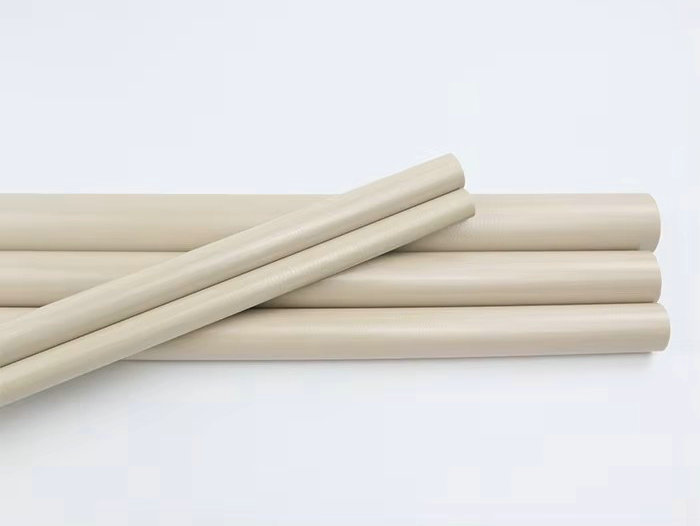
Introduction
ARKPEEK® -1000 (from ARK / PEEKChina) and Ketron® 1000 PEEK (from Mitsubishi Chemical / Quadrant brand family) are two of the most widely used unfilled PEEK 1000 grades for high-performance engineering applications. Their mechanical strength, thermal resistance, chemical stability, and wear performance make them highly reliable materials in aerospace, semiconductor, industrial equipment, medical devices, and analytical instrumentation.
Based on published datasheets and global market usage, ARKPEEK-1000 and Ketron® 1000 exhibit equivalent material behavior, meaning they can be used interchangeably in most engineering applications.
However, ARKPEEK-1000 offers greater cost efficiency, making it the preferred choice for volume production or cost-sensitive projects.
1. Technical Comparison Table: ARKPEEK-1000 vs Ketron® 1000 PEEK
| Property | ARKPEEK®-1000 | Ketron® 1000 PEEK |
| Material Type | 100% Unfilled PEEK | 100% Unfilled PEEK |
| Density (g/cm³) | 1.30 | 1.31 |
| Melting Point (°C) | 343 | 340 |
| Continuous Use Temperature (°C) | 260 | 250 |
| Tensile Strength (MPa) | 110Mpa | 110Mpa |
| Tensile Modulus (GPa) | 4.0-4.3 | 4.1-4.3 |
| Elongation at Break | High toughness, non-brittle | High toughness, non-brittle |
| Water Absorption (24h) | 0.05-0.12% | 0.06-0.12% |
| Chemical Resistance | Excellent | Excellent |
| Sterilization Resistance | Fully rated for steam, EO, gamma, dry heat sterilization | Fully rated for steam, EO, gamma, dry heat sterilization |
| Compliance / Certification | COA/FDA/EU food contact | FDA/EU food contact |
| Available Forms | Sheets, rods, tubes, custom parts | Sheets, rods, tubes |
| Price Level | Lower, cost-effective | Brand premium pricing |
2. Performance Comparison
2.1 Thermal Properties
Both grades exhibit nearly identical high-temperature behavior thanks to the inherent structure of PEEK (polyether ether ketone).
Melting points differ only by 3°C.
Long-term use temperatures fall within the 250–260°C range.
This makes both materials suitable for continuous heat exposure, autoclave environments, and hot fluid handling systems.
2.2 Mechanical Performance
As unfilled PEEK grades, ARKPEEK-1000 and Ketron® 1000 share similar mechanical characteristics:
High tensile strength (115 MPa)
Excellent fatigue resistance
High impact toughness
Superior dimensional stability
The slight variation in tensile strength does not meaningfully affect real-world application performance.
2.3 Chemical Resistance
Both materials show the classic chemical profile of PEEK:
Inert to acids, alkalis, hydrocarbons, and organic solvents
Resistant to steam, high-purity water, and sterilization cycles
Not suitable for strong oxidizing acids (e.g., nitric, sulfuric at high concentrations)
This makes both grades ideal for semiconductor wet benches, chemical pumps, and HPLC/analytical fluid connectors.
2.4 Machinability & Processing
Both materials:
Machine cleanly with carbide tools
Require proper drying before molding
Maintain excellent post-machining dimensional stability
Offer very low wear under friction
Manufacturing complexity is identical.
3. Application Areas
Both grades are broadly utilized in:
Aerospace structural and interior components
Automotive engine and transmission parts
Electronics and electrical insulation systems
Medical, analytical, and pharmaceutical equipment
Chemical equipment, pump and valve components
These industries demand high mechanical strength, temperature resistance, and chemical stability—areas where both ARKPEEK-1000 and Ketron 1000 PEEK excel.
4. Cost-Effectiveness and Recommendation
While ARKPEEK-1000 and Ketron 1000 PEEK deliver highly similar performance, ARKPEEK-1000 generally offers a more attractive price point. This makes ARKPEEK-1000 the preferred choice when both performance and budget are vital considerations, allowing manufacturers to maintain quality and reliability without overspending.